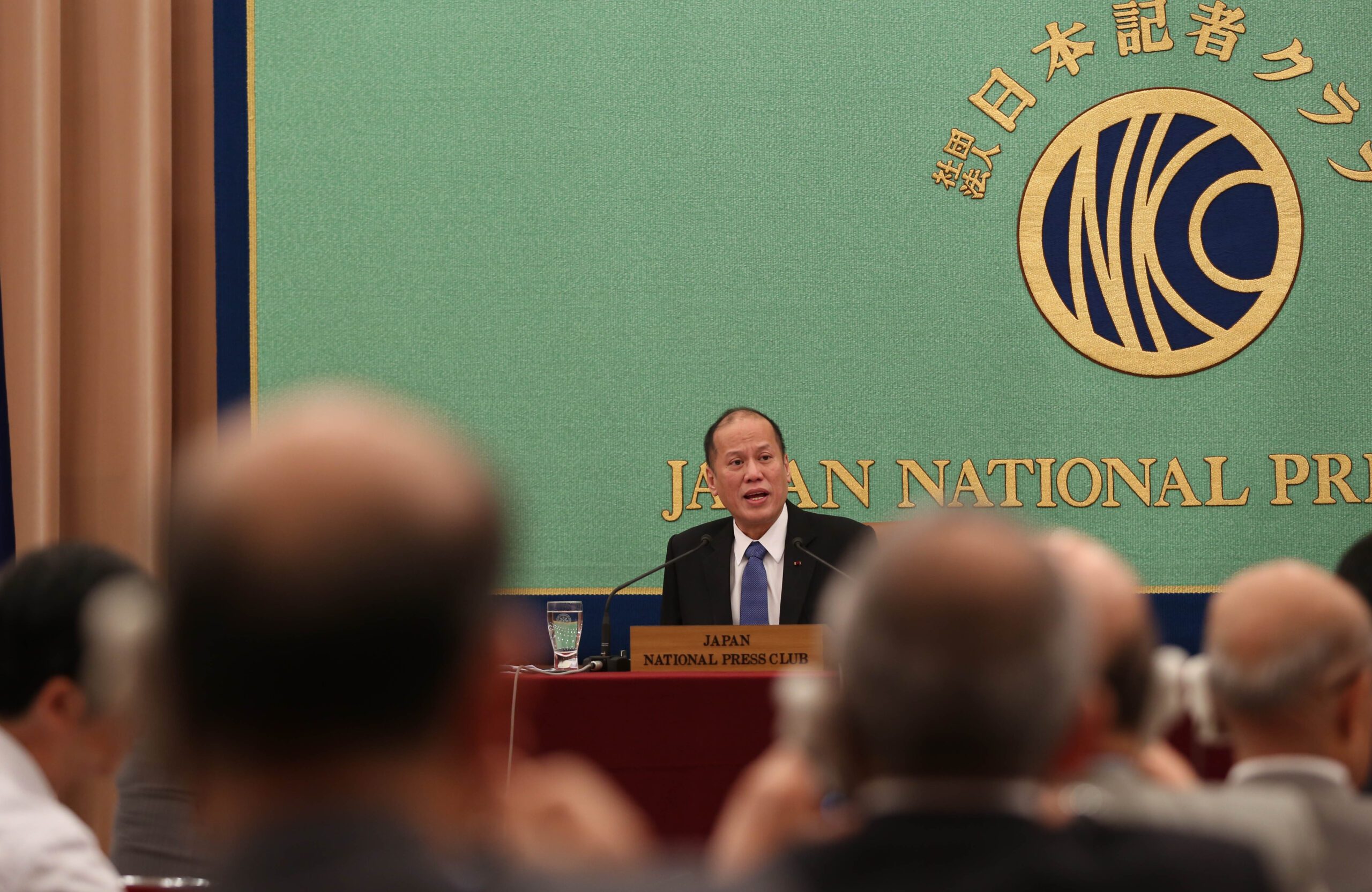SUMMARY
This is AI generated summarization, which may have errors. For context, always refer to the full article.

MANILA, Philippines – The Philippines said it is taking its time in considering its membership in the China-led Asian Infrastructure Investment Bank (AIIB) on the day that 57 founding members began signing the bank’s articles of agreement.
On Monday, June 29, Australia became the first country to sign the document in the Great Hall of the People in Beijing, according to an Agence France-Presse reporter at the ceremony. (READ: 57 countries hold signing ceremony to set up China-led bank)
The AIIB, which will have billions of dollars to lend, is set to go into operation later this 2015.
As stated on the AIIB website, the articles remain open for signing by the remaining 7 prospective founding members, which include the Philippines, until end-2015.
“Not signing today does not preclude us from signing before the aforementioned deadline,” Philippine Finance Secretary Cesar Purisima said. (READ: The Asian Infrastructure Investment Bank: Considerations for the Philippines)
As per the bank’s articles of agreement, the Philippines’ capital subscription to become a member would be $979.1 million or an estimated P44 billion.
The AIIB will be a new multilateral development bank which will provide financial support for infrastructure development and regional connectivity in Asia.
Rival to World Bank, ADB?
It has been viewed by some as a rival to the World Bank and Asian Development Bank. The United States and Japan – the world’s largest and third-largest economies, respectively – have declined to join.
AIIB, to be headquartered in Beijing, will initially have an authorized capital stock of $100 billion. Its regional members will be the majority shareholders, holding approximately 75% of shares.
China has the largest capital subscription of $29.78 billion, the articles of agreement showed.
During his state visit to Japan early in June, President Benigno Aquino III said the Philippines has not joined AIIB yet and has not indicated yet if it is ready to join. (READ: Aquino: PH still mulling AIIB invitation)
“We have not joined the AIIB. We have not indicated that we are ready to join also,” Aquino said in response to questions at the Nikkei 21st International Conference on the Future of Asia in Tokyo.
Aquino said the China-funded Northrail project approved during the Arroyo administration – and later scrapped under his watch – is a cautionary example of why the government is exercising due prudence in joining the AIIB.
The Northrail project, funded by a $400-million loan from the Export-Import Bank of China, was among the controversial projects that hounded the Arroyo administration.
In 2003, the project was awarded to the China National Machinery and Equipment Corporation (CNMEC) for an original cost of $421 million.
In 2009, CNMEC increased the contract price to $593 million, with the government agreed to shoulder the difference.
In 2011, the Aquino administration scrapped the project over lingering legal issues and corruption allegations.
But the Philippines had an obligation to pay China Exim a little over $180 million in 4 tranches every 6 months starting September 2012, as non-payment of the loan could hurt the country’s credit ratings.
Citing this experience, Aquino said Philippine officials have to determine whether joining the AIIB would be “a net positive or not,” especially given the current strained ties between the two countries over the South China Sea dispute.
World Bank group lead congratulates AIIB
AIIB is expected to be operational by end-2015.
In a separate statement, World Bank Group President Jim Yong Kim congratulated all the founding members of the AIIB on the establishment of the new development institution.
“More funding for infrastructure will help the poor, and we are pleased to be working with China and others to help the AIIB hit the ground running,” he said.
Kim said that the developing world’s infrastructure investment needs are too huge for any single institution.
He mentioned that the world spends about $1 trillion a year on infrastructure, but the vast majority of that goes to developed countries.
Emerging markets and low-income countries face an annual gap of $1 trillion to $1.5 trillion in infrastructure spending.
Kim added that the World Bank group views AIIB as an important new partner that shares a common goal: ending extreme poverty.
“With strong environment, labor and procurement standards, the AIIB will join us and other development banks in addressing the huge infrastructure needs that are critical to ending poverty, reducing inequalities, and boosting shared prosperity,” Kim said. – Rappler.com
Add a comment
How does this make you feel?
There are no comments yet. Add your comment to start the conversation.